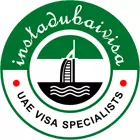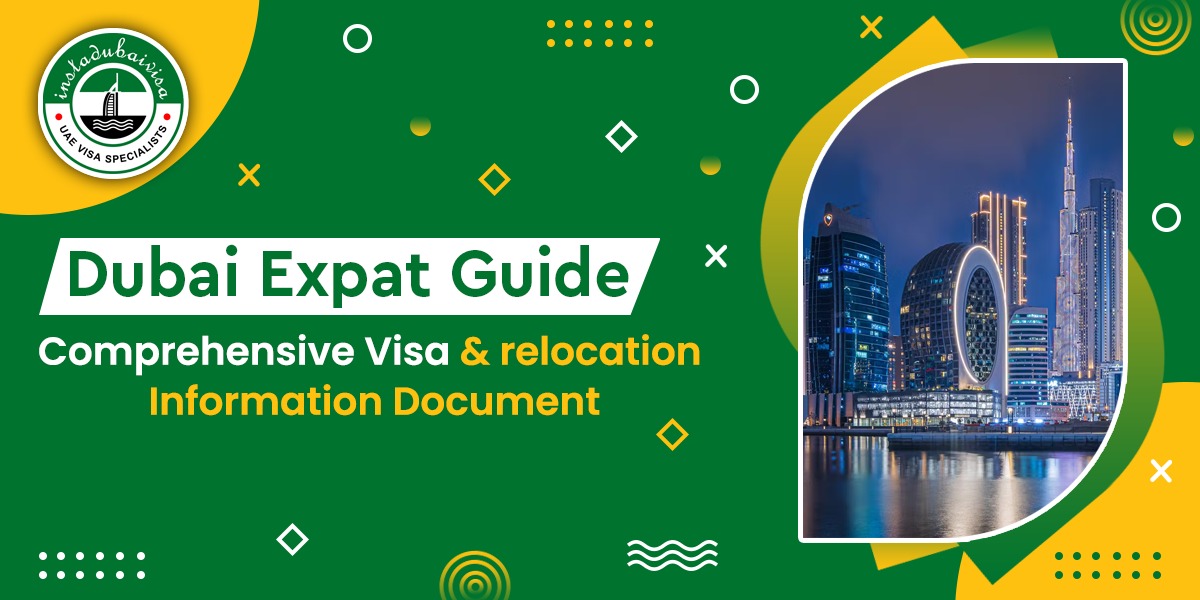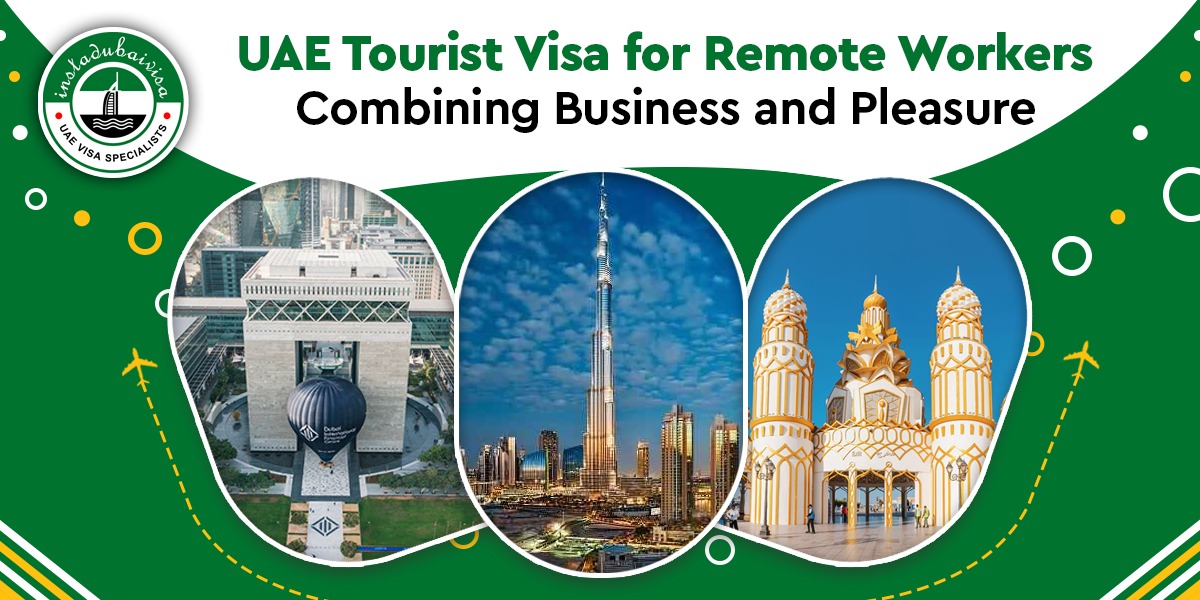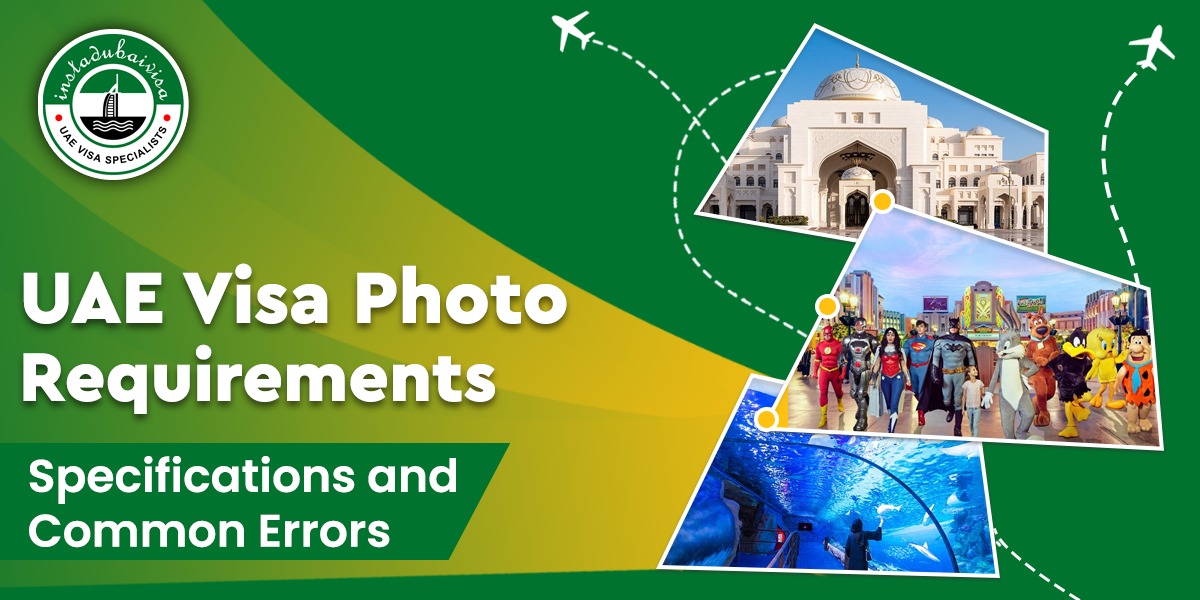Introduction
Moving to Dubai as a first-time expatriate is like stepping into a dazzling dream—a city where futuristic skyscrapers pierce the sky, golden deserts stretch endlessly, and luxury meets opportunity at every turn. Perhaps you've secured a position in this thriving metropolis, or maybe you're pursuing a fresh start in a place that feels like the crossroads of the world. Whatever your reason, one thing's for sure: navigating the Dubai visa process and settling into life here can feel overwhelming at first. But don't worry—we've got you covered.
Welcome to the ultimate Dubai Visa and Relocation Guide for First-Time Expatriates, brought to you by Instadubaivisa.com. Whether you're sorting out your UAE visa, figuring out how to get around, or wondering where to find the best shawarma, this guide will walk you through every step of your transition. From visa applications to cultural nuances, housing recommendations to weekend escapes, consider this your expatriate handbook for thriving in Dubai in 2025.
Why Dubai? The Allure for First-Time Expatriates
Dubai isn't just a destination—it's a lifestyle. For first-time expatriates, it's a city of endless possibilities. Picture this: tax-exempt income, a multicultural community where over 200 nationalities coexist, and a quality of life that blends modern convenience with Middle Eastern charm. You might be here for a career in finance, technology, or hospitality, or maybe you're drawn by the promise of sunshine 365 days a year. Whatever your motivation, Dubai delivers.
But before you can sip coffee overlooking the Burj Khalifa or negotiate deals in a sleek office tower, you'll need to tackle the essentials—starting with your Dubai visa. Without it, your expatriate journey can't begin. So, let's break down the visa process and get you on your way.
Understanding the Dubai Visa for Expatriates
Moving to Dubai as an expatriate typically means securing a residence visa, often tied to employment. Unlike tourist visas meant for short stays, a residence visa lets you live and build a life in the UAE. Here's what first-time expatriates need to know about the UAE visa landscape.
Investor or Business Visa
What It Is: For entrepreneurs or investors starting a business in Dubai. Options include 3-year or 10-year visas (like the Golden Visa).
Who It's For: Business owners or those investing in UAE property or companies.
Key Benefit: Flexibility to live without a traditional employer.
Dependent Visa
What It Is: For family members of expatriates already on a residence visa.
Who It's For: Spouses, children, or even parents (with conditions).
Key Benefit: Keeps your family together in the UAE.
How to Apply for Your Dubai Visa
Your visa journey starts with a job offer or business plan, but the process is straightforward with the right guidance. Here's the step-by-step:
1. Secure a Sponsor
- For an employment visa, your employer is your sponsor. They'll initiate the process through the UAE's Ministry of Human Resources and Emiratisation (MOHRE).
- For freelance or investor visas, a free zone authority or business partner sponsors you.
2. Entry Permit
- Before entering Dubai, you'll need an entry permit (a temporary visa). Your sponsor applies for this via the General Directorate of Residency and Foreigners Affairs (GDRFA) or the Immigration and Citizenship Platform (ICP).
- Once approved, you have 60 days to enter the UAE.
3. Medical Test and Emirates ID
- After reaching Dubai, you'll undergo a medical screening (blood test, chest X-ray) at a UAE-approved clinic. This checks for communicable diseases.
- Next, apply for your Emirates ID—a must-have for everything from renting an apartment to getting a phone line.
4. Residence Visa Stamping
- With a clean medical report and Emirates ID in hand, your sponsor submits your documents to stamp the residence visa in your passport.
- Processing typically takes a few weeks, and then you're officially an expatriate resident!
Documents You'll Need
- Passport (valid for 6+ months)
- Passport-sized photos
- Job offer letter or contract (for employment visa)
- Sponsor's documents (e.g., trade license for businesses)
- Medical fitness certificate (post-entry)
Beginning Your Dubai Journey: First Steps as an Expatriate
You've got your Dubai visa sorted, and your plane has just landed at Dubai International Airport (DXB). The city's energy is immediately apparent—bustling terminals, sleek architecture, and a warm desert breeze. But what now? Here's how to start your journey smoothly.
Step 1: Temporary Accommodation
Unless your employer provides housing (common in some sectors), book a hotel or serviced apartment for your first few weeks. Popular areas for newcomers include:
- Downtown Dubai: Close to landmarks like the Burj Khalifa, perfect for a central location.
- Dubai Marina: Waterfront living with a lively expatriate community.
- Jumeirah: Quieter, family-friendly, and near the beach.
Step 2: Get a Local SIM Card
Head to a Du or Etisalat kiosk at the airport or a mall. A prepaid SIM with data keeps you connected while you settle in. Bonus: Many plans include minutes for international calls—convenient for checking in back home.
Step 3: Open a Bank Account
You'll need a UAE bank account for salary deposits and daily expenses. Bring your passport, visa, Emirates ID (once issued), and a No Objection Certificate (NOC) from your sponsor. Top banks like Emirates NBD, Mashreq, or HSBC cater to expatriates with English-speaking staff.
Step 4: Register with Your Embassy
Not mandatory, but advisable. Registering with your home country's embassy or consulate in Dubai ensures support in emergencies—like misplacing your passport or needing legal assistance.
Finding a Home in Dubai
Housing is a significant consideration for first-time expatriates, and Dubai offers options for every budget and lifestyle. Whether you're renting a contemporary apartment or a spacious villa, here's what to know.
Popular Expatriate Neighborhoods
Downtown Dubai
Atmosphere: Urban, high-energy, close to business hubs. Best For: Singles or couples in finance/tech sectors. Highlights: Burj Khalifa views, Dubai Mall nearby.
Dubai Marina
Atmosphere: Trendy, waterfront, abundant nightlife. Best For: Young professionals or social individuals. Highlights: The Walk, yacht watching.
Jumeirah Village Circle (JVC)
Atmosphere: Affordable, community-focused. Best For: Families or budget-conscious expatriates. Highlights: Parks, quieter streets.
The Springs/The Meadows
Atmosphere: Suburban, green, villa living. Best For: Families with children or pets. Highlights: Lakes, community pools.
Renting Tips
- Use a Real Estate Agent: Platforms like Property Finder or Bayut connect you with agents who speak your language.
- Check Inclusions: Some rentals cover utilities or maintenance—clarify upfront.
- Payment Terms: Landlords often request 1-4 cheques annually. Fewer cheques might mean a discount.
- DEWA Setup: Register for Dubai Electricity and Water Authority (DEWA) for utilities once you sign a lease.
Getting Around Dubai
Dubai's transport system is expatriate-friendly, whether you're driving, riding, or walking. Here's your guide to mastering mobility.
Public Transport
- Dubai Metro: Clean, efficient, and affordable. The Red and Green lines cover key areas like Downtown, Marina, and Deira. Get a Nol card for seamless travel.
- Buses: Extensive network, great for budget travelers.
- Taxis/Rideshares: Uber, Careem, or traditional taxis are readily available—perfect for evenings or hot days.
Driving in Dubai
- License: Use your home country's license temporarily (check eligibility), then apply for a UAE one via the Roads and Transport Authority (RTA).
- Car Rental: Short-term option while you settle. Companies like Hertz or local firms are at the airport.
- Buying a Car: Popular among expatriates staying long-term. Look into second-hand options on DubiCars.
Walking and Cycling
- Winter Months: Best time to explore on foot or bike, especially in areas like Al Seef or Kite Beach.
- Summer Caution: Temperatures exceed 40°C (104°F)—remain in air-conditioned spaces then.
Professional Life in Dubai: What to Expect
Your career likely brought you here, so let's discuss workplace dynamics. Dubai's professional culture blends global standards with local nuances.
Work Environment
- Hours: Typically 9 AM-6 PM, Sunday to Thursday. Friday-Saturday is the weekend.
- Dress Code: Business casual to formal, depending on your industry. Modesty is key—avoid revealing attire.
- Multicultural Teams: You'll collaborate with people from India, the UK, the Philippines, and beyond. English is the business lingua franca.
Ramadan in the Workplace
During the holy month, working hours often shorten, and non-Muslims adapt by respecting fasting colleagues (no eating/drinking in public). It's an excellent opportunity to experience UAE culture firsthand—think iftar feasts and festive markets.
Living Costs in Dubai
Dubai's reputation for luxury doesn't mean it's all high-end. Your lifestyle dictates your expenses. Here's a snapshot:
- Housing: Largest expense—varies by area and property type.
- Food: Affordable street cuisine (like falafel) to upscale dining options.
- Transport: Public options keep costs low; driving adds fuel and maintenance.
- Entertainment: Complimentary beaches to premium brunches—mix it up!
Cultural Tips for First-Time Expatriates
Dubai is welcoming, but respecting local customs builds bridges. Here's how to integrate:
- Dress Modestly: Cover shoulders and knees in public. Beachwear stays at the beach.
- Greetings: A handshake or "As-salamu Alaikum" (peace be upon you) works wonders.
- Alcohol: Available at licensed venues only—don't consume in public.
- PDA: Keep public affection minimal to avoid offending locals.
Exploring Dubai: Must-Experience Activities for Expatriates
Balance your professional and personal life—Dubai offers plenty of leisure options. Here are top recommendations for your time off:
Iconic Landmarks
- Burj Khalifa: Experience the view from the 124th floor—stunning day or night.
- Palm Jumeirah: Stroll the boardwalk or visit Atlantis.
- Dubai Frame: A literal frame showcasing old and new Dubai.
Outdoor Adventures
- Desert Safari: Dune bashing, camel rides, and a Bedouin-style dinner under the stars.
- Hatta: Kayak in mountain lakes or hike scenic trails, just 90 minutes away.
- Kite Beach: Swim, jog, or enjoy coffee with Burj Al Arab views.
Cultural Experiences
- Al Fahidi District: Explore historic lanes and sip tea at a courtyard café.
- Dubai Opera: Attend a performance in this architectural gem.
- Souks: Negotiate for spices in Deira or gold in Bur Dubai.
Connecting with the Expatriate Community
You're not alone—Dubai's expatriate network is vast and vibrant.
- Meetups: Join groups on Meetup.com for everything from hiking to photography.
- Facebook Groups: "Dubai Expats" or nationality-specific pages are valuable for advice.
- Clubs: Sports, book, or language clubs help you find your community.
Healthcare in Dubai
Quality healthcare is a Dubai hallmark.
- Insurance: Mandatory for expatriates—your employer usually provides it.
- Clinics/Hospitals: Premium options like Mediclinic or American Hospital Dubai.
- Emergencies: Dial 999 for ambulances—services are prompt.
Education for Expatriate Children
If you've relocated with children:
- Schools: International curriculums (IB, British, American) abound. Gems Education manages popular options.
- Enrollment: Start early—leading schools have waitlists. Bring academic records and your visa documentation.
Weekend Excursions from Dubai
Need a change of scenery? The UAE and beyond offer escapes:
- Abu Dhabi: Grand Mosque, Louvre, and Yas Island in 90 minutes.
- Fujairah: Beaches and snorkeling on the east coast.
- Oman: Visa on entry for UAE residents—Muscat's just a short flight or drive.
Insider Tips for First-Time Expatriates
After assisting countless expatriates via Instadubaivisa.com, here are our learned insights:
- Timing Matters: Apply for your visa early—delays can occur.
- Learn Basic Arabic: "Shukran" (thank you) goes a long way.
- Budget Smart: Plan for summer AC costs—heat is significant!
- Network: Informal meetings with colleagues or fellow expatriates open doors.
- Explore Early: Experience Dubai before peak hours—weekends get busy.
FAQs for First-Time Expatriates in Dubai
1. How Long Does a Dubai Visa Take for Expatriates?
Processing varies—entry permits take days, residence visas a few weeks post-entry.
2. Can I Bring My Family?
Yes, with a residence visa, you can sponsor dependents. Salary thresholds apply—check with GDRFA.
3. Do I Need to Speak Arabic?
No, English functions everywhere, but a few phrases enhance goodwill.
4. What's the Best Time to Relocate?
October-March—milder weather eases the transition.
5. How Do I Avoid Visa Complications?
Partner with Instadubaivisa.com—we'll ensure your documentation is accurate.
Conclusion: Your Dubai Adventure Awaits
Moving to Dubai as a first-time expatriate is a bold, exciting step—and with the right Dubai visa and knowledge, you're set to thrive. This city rewards ambition with opportunity, blends cultures seamlessly, and offers a lifestyle that's hard to match. From securing your UAE visa to establishing yourself, this guide has equipped you with everything you need to begin confidently.
Ready to make Dubai home? Start with Instadubaivisa.com. Apply for your visa today, and let us streamline your path to this new chapter. Have questions about your expatriate journey? Contact us—we'd be pleased to assist you!



